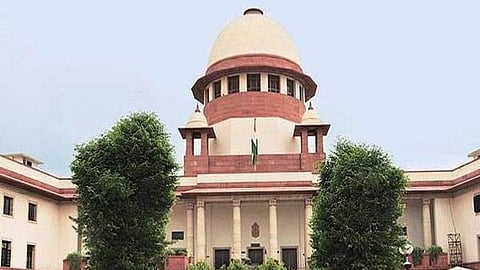

The Supreme Court (SC) of India upheld the validity of the Medical Council of India's regulation requiring additional eligibility criteria, including qualification in the National Eligibility-cum-Entrance Test (NEET), for students seeking admission to undergraduate (UG) medical programmes at foreign institutions.
A bench of Justices BR Gavai and K Vinod Chandran ruled that the regulations, particularly the additional mandate to meet the eligibility criteria, neither violate the Constitution, nor are in conflict with any provisions of the Indian Medical Council Act, 1956, and are not arbitrary or unreasonable, Deccan Herald reports.
Since 2018, NEET has been compulsory for Indian students who wish to study medicine overseas and plan to practice in India.
The court ruled that the requirement for an eligibility certificate from the medical council was introduced through an amendment to Section 13(4B) in 2001 and the addition of sub-clause (iv) under Clause 8 in 2018. Therefore, mandating qualification in the NEET exam ensures a fair and transparent process for granting eligibility certificates.
Petitioner Arunaditya Dubey argued that this requirement was first imposed in 2018 through a notification, without amending the act itself. Consequently, he contended that the NEET qualification requirement cannot be legally enforced.
"We find absolutely no reason to interfere with the regulations," the bench said.
In addition, the court also refused exemption as a one-time measure.
"Obviously, with open eyes, after the amended regulations came into effect if any candidate chose to obtain admission in a foreign institution for pursuing a course leading to a primary medical qualification, they cannot seek for an exemption from the regulations; which lays down essential eligibility criteria for practicing medicine within the Country. This does not restrict their right to practice anywhere outside India," the bench said.
The court noted that the "NEET for admission to MBBS course" qualification, which is deemed to be treated as the eligibility certificate for students desirous of pursuing primary undergraduate medical education from any medical institution outside India, is in addition to the requirement of meeting the eligibility criteria for admission to the MBBS course prescribed in the Graduate Medical Education Regulations, 1997.
